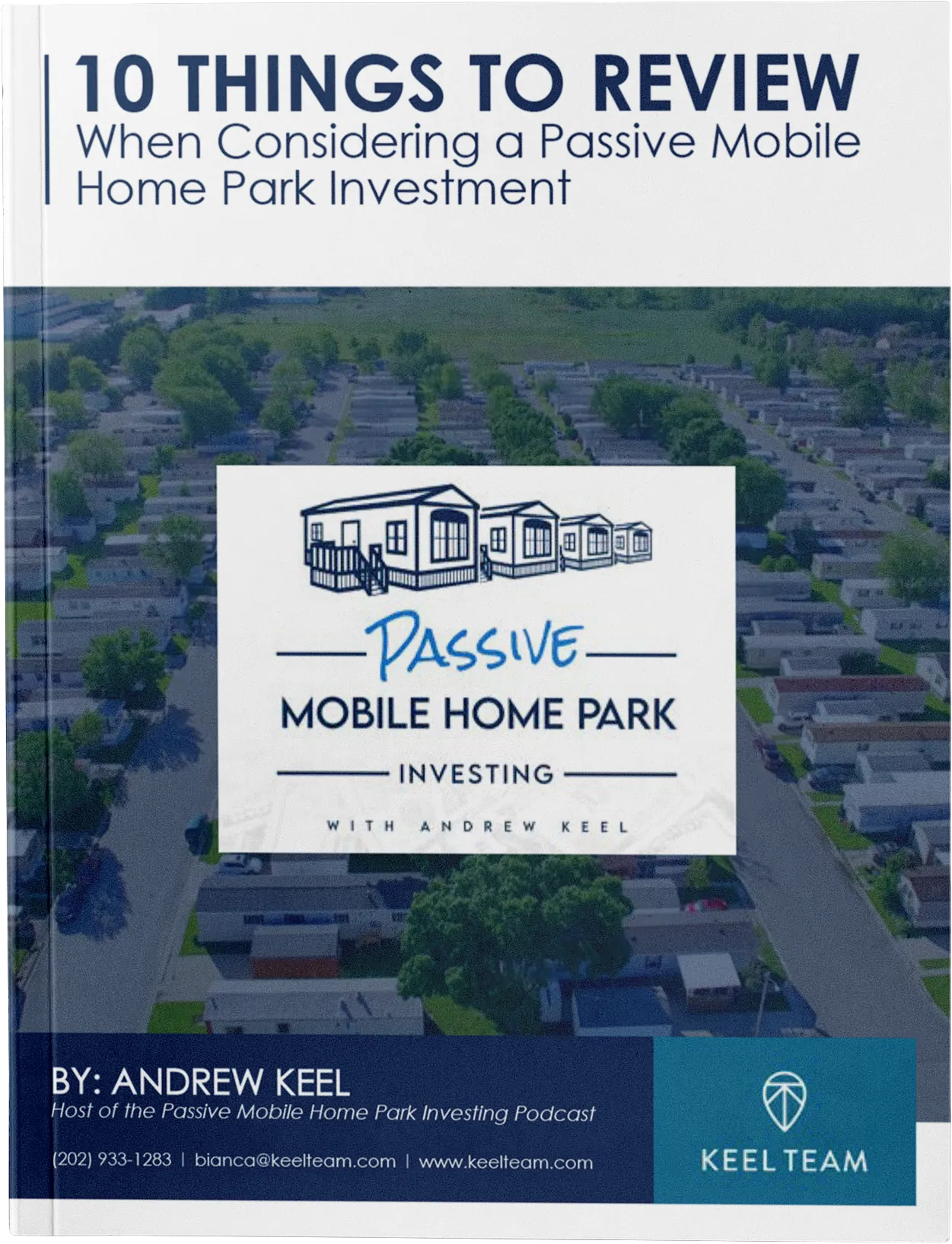Investing in mobile home park Real Estate Investment Trusts (REITs) often offers a passive investment strategy that combines the potential for stable returns with the simplicity of stock market investing. Here’s how to begin your journey in this niche market, understand its potential benefits, and educate yourself for helping make informed decisions.

Understanding Mobile Home Park REITs
Mobile home park REITs usually specialize in acquiring and managing mobile home parks. Unlike traditional real estate investments that require direct management, REITs typically provide investors the opportunity to earn dividends without dealing with the day-to-day operations of property management.
Potential Benefits of Investing in Mobile Home Park REITs
Historically Stable Cash Flow: Mobile home parks typically have high occupancy rates due to the increasing demand for affordable housing, leading to consistent rental income streams.
Likely Inflation Hedge: Real estate is generally resistant to inflation, and mobile home parks are no exception. The contracting supply and growing demand for affordable housing can potentially drive rent increases.
Typical Tax Advantages: REITs often offer significant tax benefits, including the potential for dividend income to be taxed at lower rates compared to ordinary income.
Are you interested in learning more about Passive Mobile Home Park Investing? Download our FREE eBook on the “10 Things to Review When Considering a Passive Mobile Home Park Investment“.
By Andrew Keel
How to Get Started with Mobile Home Park REITs
- Research the Market: Begin by understanding the dynamics of the mobile home park asset class. Look for trends in affordability, demographics, and real estate market fluctuations.
- Select the Right REIT: Not all REITs are created equal. Focus on those that have a strong track record, stable dividend payouts, and strategic growth plans. Sun Communities, UMH Properties, Flagship Communities and ELS Properties are some of the biggest mobile home park investing REITs in this space.
- Consider Investing Through Brokerages: Mobile home park REITs are typically listed on major stock exchanges and can be bought just like any other stock through a brokerage account. Although, you can invest in REITs yourself, this may help you get started if you are unsure where to start.
Education and Learning
Read Up: Consume as much information as you can from reliable real estate and investment websites, books, and reports about mobile home park investing. The Mobile Home University Forum and BiggerPockets Forum could help get you started and guide you in the right direction!
Attend Seminars and Webinars: Many financial experts and investment firms offer seminars and online webinars that can provide insights into real estate investments and REITs.
Network with Professionals: Engaging with industry experts through networking events or online forums can provide practical insights and real-time market trends. The Mobile Home Park Mastermind Facebook Group and Mobile Home Park Investors LinkedIn Group are a great way to get started and potentially connect with industry leaders!

Comparison with Syndications: The Likely Advantage of Direct Investment
While mobile home park REITs offer the convenience of passive investment, syndications in mobile home parks often provide distinct advantages that can align better with certain investment goals. In syndications, investors enjoy:
- Greater Transparency: Investors in syndications typically have more transparency regarding the investment performance, possibly allowing for more direct oversight of their investment.
- Potentially Higher Returns: Due to the direct involvement and specific property selection, syndications can offer higher potential returns compared to REITs, which may dilute earnings across a broader portfolio.
- Likely Tax Benefits: Syndications often allow for more favorable tax treatments, such as deductions for depreciation and expenses directly against income from the property, providing significant tax advantages.
- Direct Relationship with Management: Investors in syndications work closely with the management team, offering opportunities to build relationships and potentially influence the management strategy directly.
Conclusion
Mobile home park REITs represent a unique avenue for investors seeking to potentially diversify their portfolio with real estate while enjoying the likely benefits of passive income. By understanding the market, choosing the right REITs, and continuously educating oneself, investors can effectively engage in this growing sector with a potentially lower risk profile compared to other real estate investments.
If you are looking for further insights, check out the Passive Mobile Home Park Investing Podcast, hosted by Andrew Keel – as he dives into all things mobile home parks, featuring top industry leaders in this space! For further information, reach out to us using the contact form below:
Disclaimer:
The information provided is for informational purposes only and should not be considered investment advice, nor a guarantee of any kind. There are no guarantees of profitability, and all investment decisions should be made based on individual research and consultation with registered financial and legal professionals. We are not registered financial or legal professionals and do not provide personalized investment recommendations.

